#megan nolan
Text

Megan Nolan, Acts of Desperation
522 notes
·
View notes
Text
Being with other people was, to me, the feeling of being realised. This was why I wanted to be in love. In love, you don't need the minute-to-minute physical presence of the beloved to realise you. Love itself sustains and validates the rotten moments you would otherwise be wasting while you practise being a person, pacing back and forth in your shitty apartment, holding off till seven to open the wine.
Being in love blesses you with a sort of grace. A friend once told me he imagined his father or God watching him while he works, to help force productivity. Being in love was like that to me, a shield, a higher purpose, a promise to something outside of yourself.
Megan Nolan, Acts of Desperation
#megan nolan#acts of desperation#spilled words#spilled poetry#life quotes#love quotes#dark aesthetic#dark academia#light academia#romantic academia#words#spilled ink#spilled thoughts#oldschoolromantics
43 notes
·
View notes
Quote
Nie istnieje dla mnie uczucie wspanialsze od tego, kiedy budzę się w środku nocy, wyciągam rękę i mówię, na wpół przez sen: „Strasznie cię kocham”, a druga osoba odwraca się w moją stronę, reagując zupełnie odruchowo, i równie zaspana odpowiada: „Ja ciebie też”.
Żaden narkotyk, żadna przyjaźń, żadne jedzenie nie miało szans choćby się do tego zbliżyć.
Megan Nolan - “Akty desperacji”
82 notes
·
View notes
Text

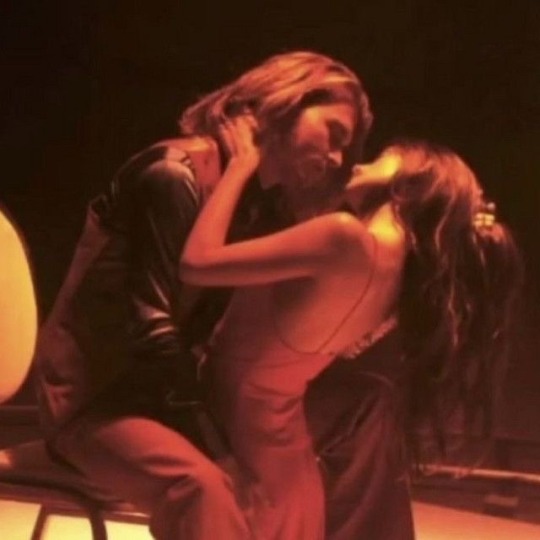

"i was in love, so i was insane."
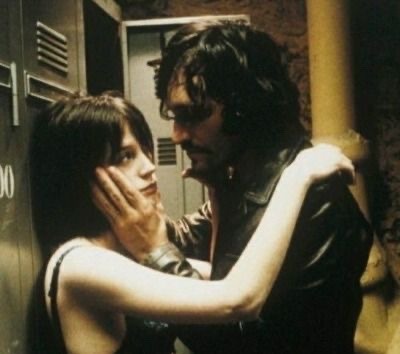


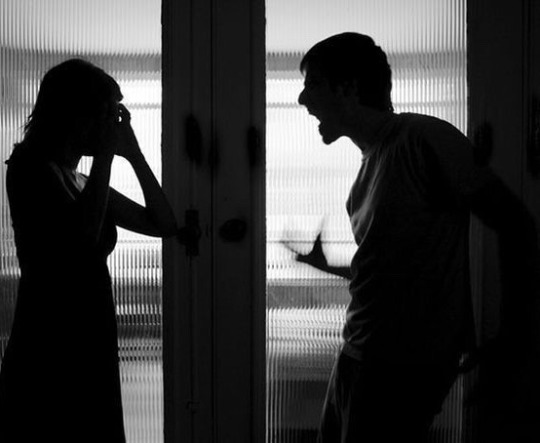

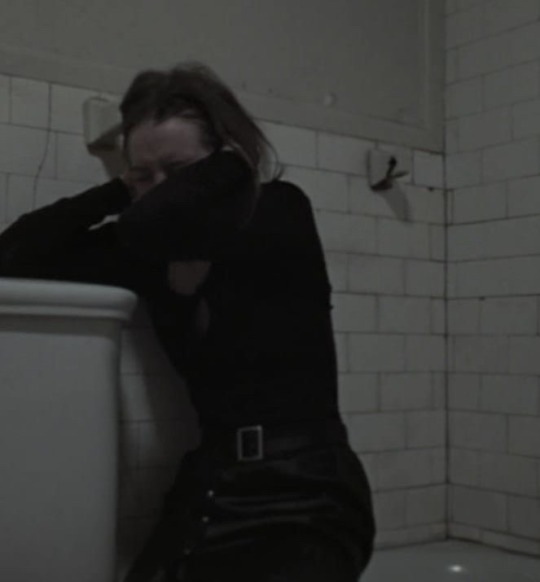
#acts of desperation#megan nolan#playlist#Spotify#concept playlist#look up tw#book moodboard#moodboard#favorite book of the year
9 notes
·
View notes
Text
Not to overshare but do you ever read something that resonates just a little too close to home?

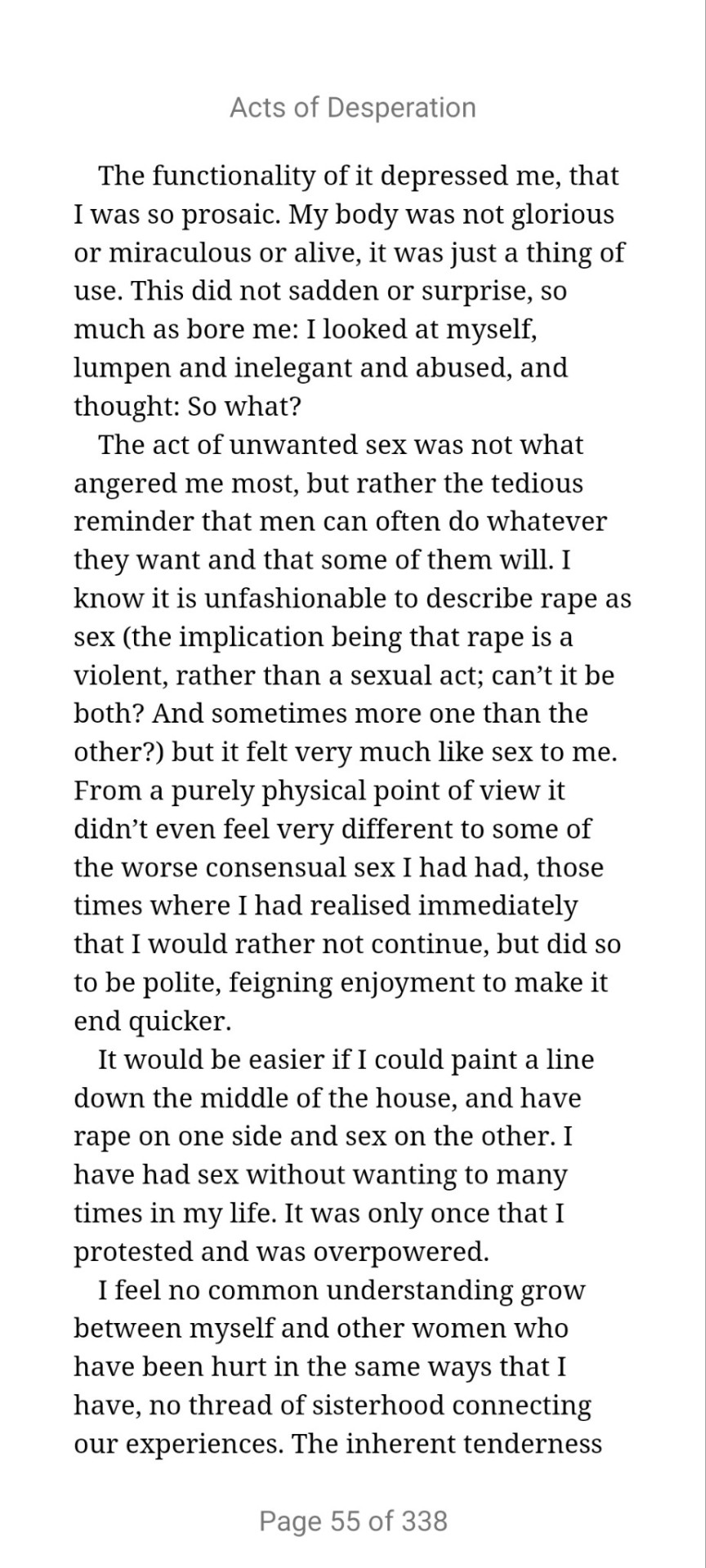
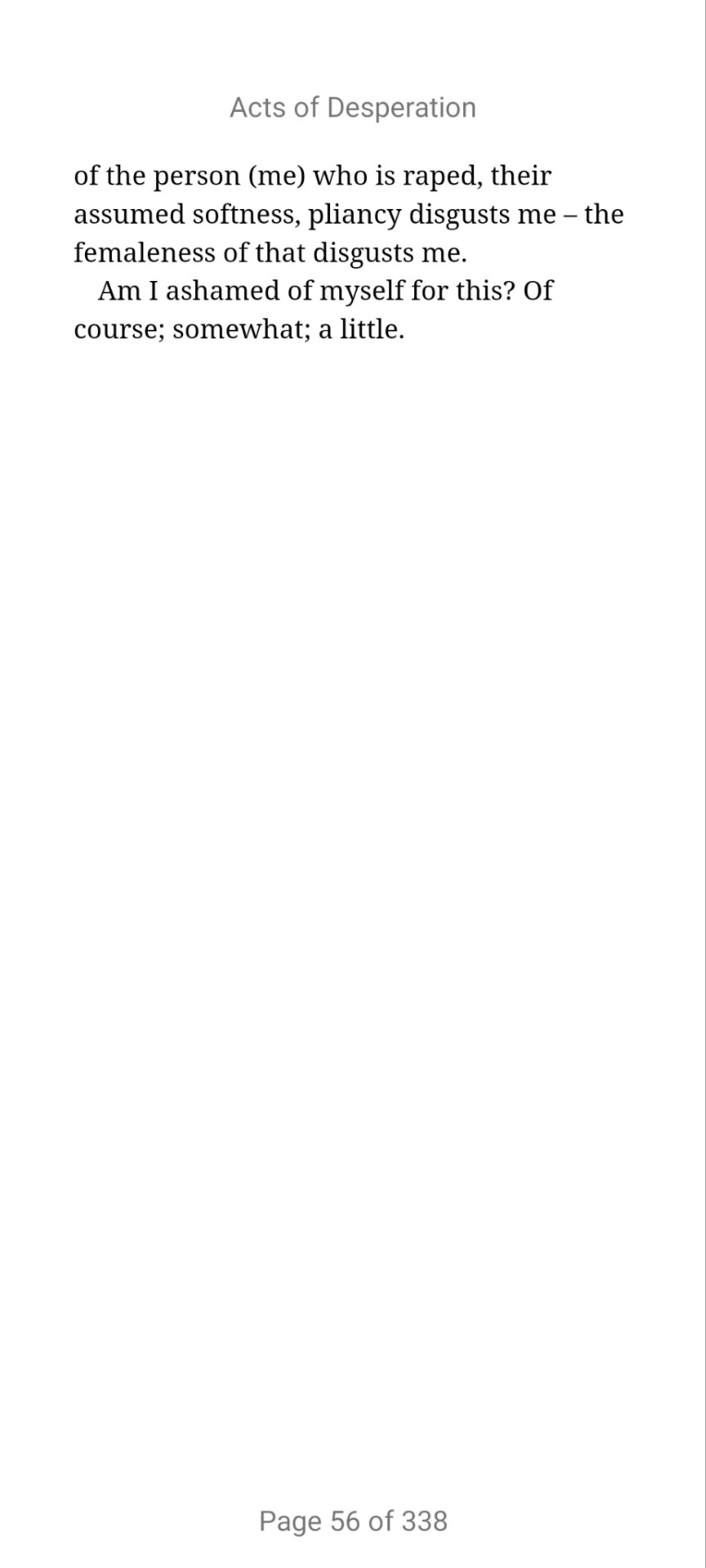
#trigger warnings#all of them#this book#i have such complicated feelings about this one already lol#acts of desperation#megan nolan#book recs#booklr
16 notes
·
View notes
Text



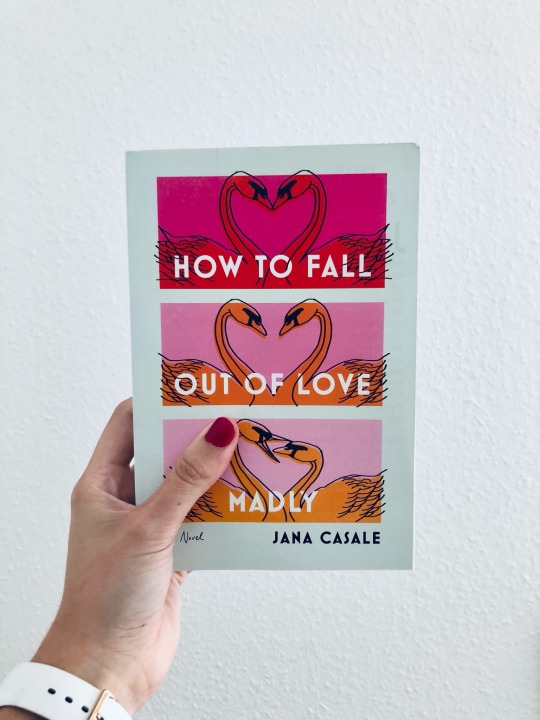
Four books that have made me feel understood as a woman. Raw emotions, struggles, incredible psychological depth. 10/10 recommend!
#books#bookblogging#reading#book tumblr#normal people#acts of desperation#sally rooney#megan nolan#jana casale#how to fall out of love madly#i want to die but i want to eat tteokbokki#baek sehee
8 notes
·
View notes
Text
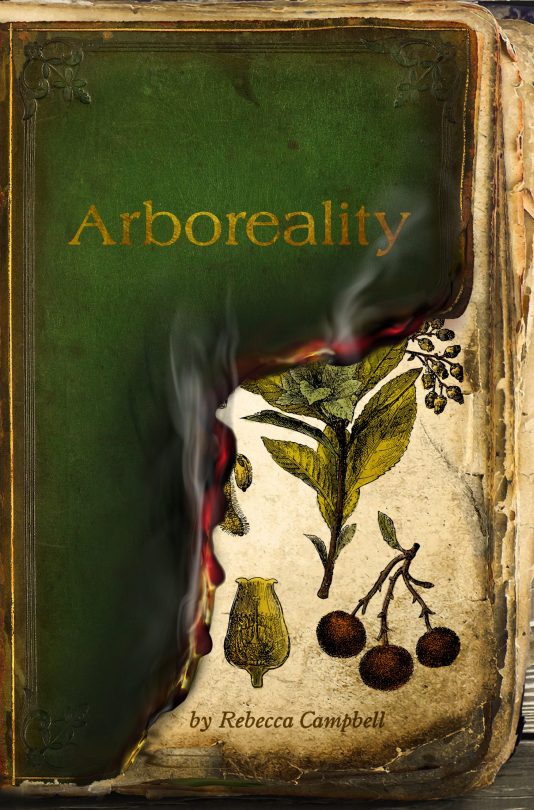



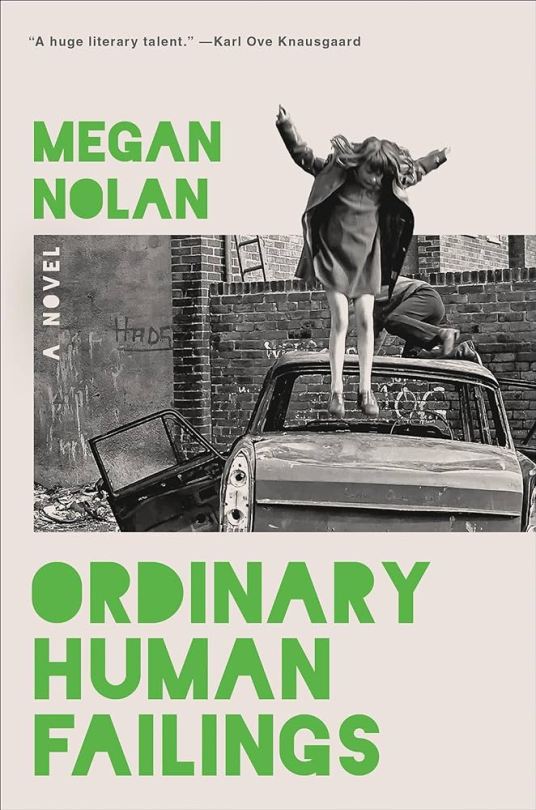
Books Read in January 2024
Such a strong month!
Arboreality by Rebecca Campbell
Absolutely depressing as fuck novella that images what the future holds for humans as we adjust to climate change. It does have an uplifting vibe but man the future is bleak.
Study in Obedience by Sarah Bernstein
Didn't quite gel with this one but it's a weird and menacing little book and one of the most interesting Giller winners that I've read.
The Beguiled by Thomas Cullinan
A study in unreliable narrators. Much more complex and interesting than Coppola's adaptation. A beautiful read.
Poor Things by Alisdair Gray
Everything I love in fiction. Meta fiction, neo victorianism, examination of gender, stylistic playfulness, and scifi. Loved it.
Ordinary Human Failings by Megan Nolan
One of those books about the banality of life that cuts deep. Nolan is one to watch out for.
#currently reading#Arboreality#Rebecca Campbell#Study in Obedience#Sarah Bernstein#The Beguiled#Thomas Cullinan#Poor Things#Alisdair Gray#Ordinary Human Failings#Megan Nolan
3 notes
·
View notes
Text
You grow cold, or you die yourself.
Megan Nolan, in 'Acts of Desperation'
10 notes
·
View notes
Quote
Love was the great consolation, would set ablaze the fields of my life in one go, leaving nothing behind. I thought of it as the great leveller, as a force which would clean me and by its presence make me worthy of it.
Megan Nolan, Acts of Desperation
#acts of desperation#love#quote#literature#megan nolan#words#found this in my drafts - never finished this novel but liked this quote
61 notes
·
View notes
Text
When Megan Nolan published her first novel, fellow authors warned her in “ominous tones” about the website Goodreads. The young Irish writer looked at the book’s listing there in the winter of 2020, the day the first proof copy arrived at her house. “Nobody but me and the publisher had seen it,” she wrote recently. “Despite this, it had received one review already: two stars, left by someone I had inconsequential personal discord with. It was completely impossible for him to have read the book.”
The terrible power of Goodreads is an open secret in the publishing industry. The review site, which Amazon bought in 2013, can shape the conversation around a book or an author, both positively and negatively. Today’s ostensible word-of-mouth hits are more usually created online, either via Goodreads or social networks such as Instagam and TikTok.
Publishers know how important these dynamics are, and so they send out advanced reading copies, or ARCs, not just to independent booksellers who might stock a title, but also to influencers who might make content about it. “There’s an assumption that if you receive an ARC that you will post about it,” Traci Thomas, host of the literary podcast The Stacks, told me—“whether that’s on your Goodreads, on your Instagram, on your TikTok, tell other people in your bookstore, or whatever. And so that’s how it ends up that there’s so many reviews of a book that’s not out yet.”
Many book bloggers are conscientious about including a disclaimer on their posts thanking the publisher for giving them an ARC “in exchange for an honest review.” But disclosing freebies is far from a contractual requirement or even a social norm. So you can’t easily discern which early reviewers have actually read the book, and which ones might be reacting to social-media chatter (or, as Nolan suspected in her case, prosecuting a personal grudge).
That matters because viral campaigns target unpublished books all the time. What tends to happen is that one influential voice on Instagram or TikTok deems a book to be “problematic,” and then dozens of that person’s followers head over to Goodreads to make the writer’s offense more widely known. Authors who reply to these attacks risk making the situation worse. Kathleen Hale—who was so infuriated by a mean reviewer that she tracked down the woman’s address—wrote later that the site had warned her against engagement: “At the bottom of the page, Goodreads had issued the following directive (if you are signed in as an author, it appears after every bad review of a book you’ve written): ‘We really, really (really!) don’t think you should comment on this review, even to thank the reviewer.’” Most authors I know read their Goodreads reviews, and then silently fume over them alone. Because I am a weirdo, I extract great enjoyment from mine—the more petty and baffling the complaints, the better. “I listened to the audiobook and by chapter 3 it started to annoy me the little pause she made before the word ‘male,’” reads one review of my book, Difficult Women.
When the complaints are more numerous and more serious, it’s known as “review-bombing” or “brigading.” A Goodreads blitzkrieg can derail an entire publication schedule, freak out commercial book clubs that planned to discuss the release, or even prompt nervous publishers to cut the marketing budget for controversial titles. Last month, the Eat, Pray, Love author Elizabeth Gilbert withdrew her upcoming novel The Snow Forest from publication because of the backlash she received after revealing it was set in Soviet Russia. The Goodreads page for The Snow Forest, which has since been taken down, accused her of romanticizing the Russian soul. “I’ll cut the job for you—they don’t have any,” wrote one reviewer. Another wrote: “Just like her characters in this nover [sic] are unaware of the events of WWII, Elizabeth Gilbert herself seems to be unaware of the genocidal war russia is conducting against Ukraine RIGHT NOW, because I’m sure if she knew, she’d realise how tone deaf this book is.”
The book had been scheduled for release next February, but in a video announcing that it was “not the time for this book to be published,” Gilbert essentially endorsed the Goodreads criticisms: “I do not want to add any harm to a group of people who have already experienced and who are all continuing to experience grievous and extreme harm.”
Now, I don’t know whether The Snow Forest romanticized the Russian soul or would somehow have caused “harm” to Ukrainians. Like my colleague Franklin Foer, I find the allegations hard to believe. But the plain fact is that neither of us know, because—and this should be obvious, although recent events suggest it is not—you don’t know what’s in a book you haven’t read. You also don’t know what’s in a film you haven’t watched, an album you haven’t heard, or an article you haven’t clicked on. That used to matter. It no longer does, because we live in a world where you can harvest likes by circulating screenshots of headlines and out-of-context video clips, and where marketing campaigns are big enough that they constitute artistic statements in themselves. (Barbie, I’m looking at you.)
Unfortunately, the artworks most likely to run into trouble in this viral hellscape are those that explore complicated, incendiary topics such as sex, race, and identity. Another Goodreads drama played out recently over Everything’s Fine, a debut novel written by Cecilia Rabess and published on June 6. Its plot centers on a young, progressive Black woman who falls in love with a conservative white man in the lead-up to Donald Trump’s election. “It obviously tackles some lightning-rod issues about race, class, and politics and identity in America,” Rabess told me, and so she expected strong reactions on Goodreads and similar sites. “But I think people certainly hadn’t read the book. And so I don’t know how they came to the conclusions that they did—that the book didn’t handle these topics carefully or thoughtfully or intentionally.”
Chalk that characterization up as writerly understatement. “It’s not enemies to lovers if you use it to excuse racists,” a typical one-star review read, referencing a common romance-novel trope. “Some authors shouldn’t be authors bc wtf is this!?” another offered. “i haven’t read this book nor do I plan to but having read the synopsis, I’m rating it 1-star,” a third confessed.
In the case of Everything’s Fine, the pile-on appears to have started on TikTok, where a handful of prominent creators criticized the book. The swell of anger then migrated to Goodreads, where those creators’ fans could register their disapproval. “i didnt and will not even read this i came from tiktok to say i hope the sales are so bad the bookstores have to throw away all inventory because it refuses to sell. anyone who gets an ARC of this should be ashamed,” noted another one-star review.
For Rabess, the experience was brutal. “As an artist, you’re prepared for people to not resonate with the work,” she said. “But I think it feels different when people decide that you yourself are problematic, or you yourself are causing harm, or whatever language they use to describe it. It feels a little bit surreal.” The backlash might have flourished on Goodreads, but it soon escaped to the wider internet. Rabess, who is Black, received angry direct messages and emails, as well as abusive comments under any social-media posts she made. “They said nasty things about me, about my children. Called me coon, other really unpleasant slurs. Told me that I’d be better off dead.”
The anger was scattershot. The commenters using racial slurs clearly knew Rabess’s race, but she wondered if some other online critics assumed that she was a white author intruding on territory they felt should be reserved for writers of color. While authors are sensibly told not to read the reviews—and certainly not to engage with critics—that’s harder when the critics come right up in your (virtual) face and shout their opinions at you.
As it happens, the podcaster Traci Thomas was among those who disliked Rabess’s book—albeit after reading an advance copy, back in January. “It’s an icky book,” she told me. She objected to what she saw as the moral of the story: Love conquers all, even being a Trump supporter. “The boyfriend in the book, Josh, is wearing a MAGA hat and, like, saying racist shit to [the female protagonist]. And she’s like, It’s fine. And the big revelation for her is that she can still choose to love him. And I’m just like: Okay, cool, go off—and I’m gonna tear this book to shreds.”
Ultimately, Thomas concluded, “I don’t know that the book needs to exist.”
Despite her own strong feelings, Thomas told me that she sometimes felt uneasy about her own reviews being surrounded by knee-jerk reactions and “performative allyship,” even by people whose politics she shared. “There are people who are new to anti-racism work or supporting LGBTQ people, or disability activism or whatever. And they feel it is their job to call out things that they notice without perhaps understanding the bigger historical context.” To illustrate the point, she gave an example: Imagine an author writes a book about Black children riding tricycles, “and then I’ll see a review that’s like, ‘This book didn’t talk about Black preschoolers who ride bikes, and they’re also at risk.’”
That dynamic explains one of the most initially counterintuitive aspects of viral pile-ons: that many seem to target authors who would agree with their critics on 99 percent of their politics. A strange kind of progressive one-upmanship is at work here: Anyone can condemn Ann Coulter’s latest book, but pointing out the flaws in a feminist or anti-racist book, or a novel by a Black female author, establishes the critic as the occupant of a higher moral plane.
The net effect of this is to hobble books by progressive authors such as Gilbert, and by writers of color such as Rabess. The latter is philosophical about the controversy over Everything’s Fine, seeing the backlash as representative of the political moment she was exploring in the novel—of “people feeling a dearth of community and connection, and just wanting a way to connect, a way to express themselves or express their anger.”
Of course, if Goodreads wanted to, it could fix the review-bombing problem overnight. When services that rely on user-generated content are only lightly moderated, it’s always a conscious decision, and usually a cold commercial one. After Gilbert pulled her novel from publication, The Washington Post observed that Amazon, which reportedly paid $150 million for Goodreads, now shows little interest in maintaining or updating the site. Big changes to a heavily trafficked site can be costly and risk annoying the existing user base: Reddit has recently faced down a moderators’ revolt for changes to how developers can access its tools, and Elon Musk’s tenure at Twitter—or whatever it’s now called—will one day be taught at business schools on a slide headlined “How to Lose Advertisers and Alienate People.” A purge of duplicate accounts might sweep up some fanatically devoted Goodreads users—people who can’t bear to share their opinion only once—and make the site feel less busy and exciting.
Goodreads spokesperson Suzanne Skyvara told me by email that the site “takes the responsibility of maintaining the authenticity and integrity of ratings and protecting our community of readers and authors very seriously.” She added that Goodreads is working to “stay ahead of content and accounts that violate our reviews or community guidelines” and has “increased the number of ways members can flag content to us.”
The main Amazon site has several measures in place to stop review-bombing: Reviews from verified purchasers of books are flagged as such to bolster their credibility, while the star rating is the product of a complicated algorithm rather than simply an average of all the review scores. Goodreads could adopt even more stringent measures—but then, it isn’t in the company’s interests to reduce volume in favor of quality, because its entire appeal is based around being a grassroots voice. “Goodreads really needs a mechanism for stopping one-star attacks on writers,” the writer Roxane Gay tweeted after Gilbert’s statement in June. “It undermines what little credibility they have left.” Traci Thomas agrees. In an email, she told me that she would like to see “verified users or reviews that get a check (or something) in exchange for proving they’ve read the book.”
If Amazon will not put the resources into controlling the wrath of Goodreads, then what fairness requires here is a strong taboo: Do not review a book you haven’t read. We should stigmatize uninformed opinions the way we stigmatize clipping your nails on public transport, talking with your mouth full, or claiming that your peacock is a service animal. A little self-control from the rest of us will make it easier for writers to approach incendiary topics, safe in the knowledge that they will be criticized only for things they’ve actually done.
#books#reading#writing#authors#literature#racism#internet#goodreads#amazon#megan nolan#traci thomas#kathleen hale#elizabeth gilbert#cecilia rabess
3 notes
·
View notes
Text

acts of desperation // megan nolan
3 notes
·
View notes
Text
Quando torno a casa a Waterford per cercare di pareggiare i conti e riconnettermi con me stessa e con il mio passato, sembra che la gente intorno a me non faccia che morire, e litigo con i miei perché non mi sforzo di comunicare con loro. Non voglio sentir parlare di malattie e tragedie, e sono stupefatta dalla loro abilità nel partecipare a un funerale dopo l'altro.
Megan Nolan, Atti di sottomissione
4 notes
·
View notes
Text

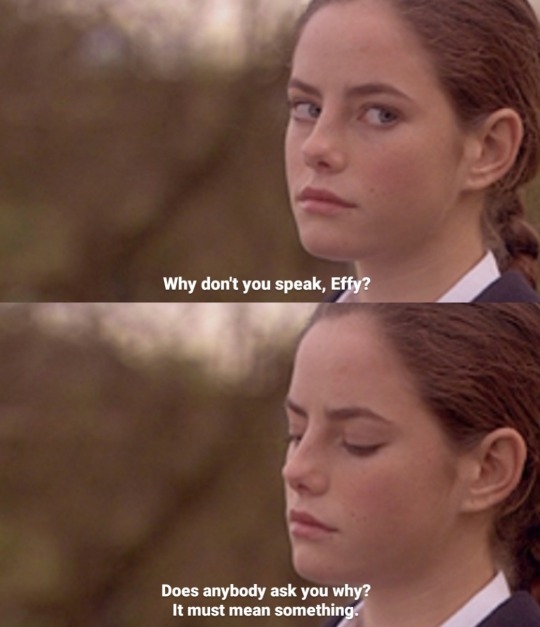


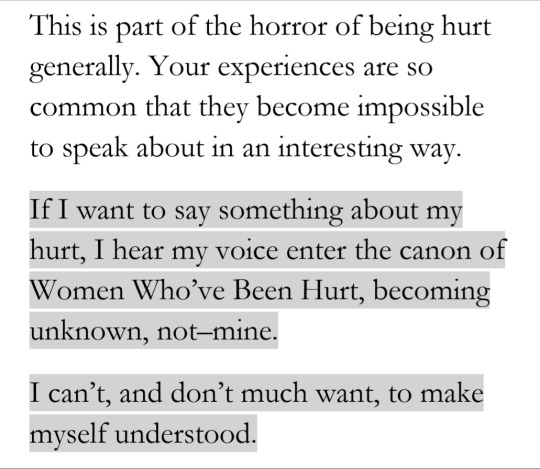


why don't you speak?
Cinnamon Girl, Lana Del Rey / Skins / What Should I Say, The 1975 / @/sendbooks via IG / Acts of Desperation, Megan Nolan / Pierrot Le Fou, Jean-Luc Godard / When Our Lips Speak Together, Luce Irigaray
#web weaving#webs#words#cinema#lana del rey#cinnamon girl#skins#effy stonem#the 1975#matty healy#megan nolan#acts of desperation#godard#pierrot le fou#luce Irigaray#girlhood#manic pixie dream girl#Lizzy grant#Kaya scodelario#girlblogging#girlblog#quotes#sad girl#tumblr girl#lux lisbon#mine
16 notes
·
View notes
Text
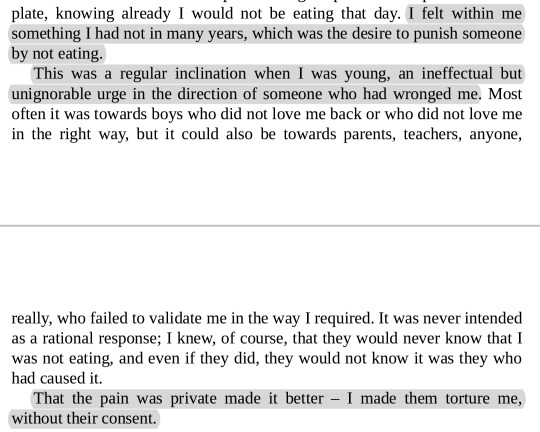
Currently reading Acts of desperation by Megan Nolan. I don't think I have read such an intense yet heartbreakingly relatable book in a while, perhaps the last such read was 'Tell the wolves I'm home'..... I started reading acts of desperation without any expectations of whether it'd suit my taste or not, or how it'd turn out. But so far in.... I've not been disappointed.
#megan nolan#acts of desperation#reading contemporary literature#reading#read in 2023#bookblr#studyblr#study aesthetic
2 notes
·
View notes
Text
"Nie istnieje dla mnie uczucie wspanialsze od tego, kiedy budzę się w środku nocy, wyciągam rękę i mówię, na wpół przez sen: „Strasznie cię kocham”, a druga osoba odwraca się w moją stronę, reagując zupełnie odruchowo i równie zaspana odpowiada: „Ja ciebie też”.Żaden narkotyk, żadna przyjaźń, żadne jedzenie nie miało szans choćby się do tego zbliżyć."
5 notes
·
View notes
Text
March Reading Roundup
Hello everyone,
March was a slow reading month as well, but I did manage to finish three books, and I did enjoy all of them. They were all fairly recent books too, that came out in the last few years. Also all written by women, very cool

Everything I Need I Get From You: How Fangirls Created the Internet as We Know It by Kaitlyn Tiffany
As someone who was on Tumblr in the early 2010s for the pictures of kittens and other animals, I was largely unaware of the vicious fandom warfare, the epic highs and lows of the 1 direction fandom. This book is in large part about 1 Direction, the author's obsession with the boy band, and using that experience and interviews with other fans to examine fangirls and how they have shaped the modern internet.
To get ahead of some of the criticisms I've seen of this book, it is not, and never pretended to be, a comprehensive history of fandom, which would be impossible. A lot of the observations that Kaitlyn Tiffany makes about the 1 Direction fandom can be generalized to other fandoms and social phenomena, and she does make some comparisons to other earlier fandoms, while also emphasizing the unique features of the fangirl phenomena, from the birth of consumerism and mass media driven culture, and the ways in which fangirls have taken this seemingly highly commercial work and transformed it into something weird, subversive, sexual, deranged, and just generally a hell of a lot more interesting than the outsiders (or "locals" as apparently they are called per the book) give them credit for.
What I admire most about the book is it manages to both be this passionate personal story, of feeling aimless in your twenties and falling in love with a boy band, connecting with fans, making friendships, while also recognizing how profoundly inadequate fandom culture can be at the times that demands are made of it by fans. The discussion of how Harry Styles did or did not address the Black Lives Matter movement and the L@rry conspiracy theories (are they here, among us? I don't want to incite their wrath please let me be) show how as strange fun and frivolous as fandom can seem at its best, it still reflects the real world and all the problems present in it.
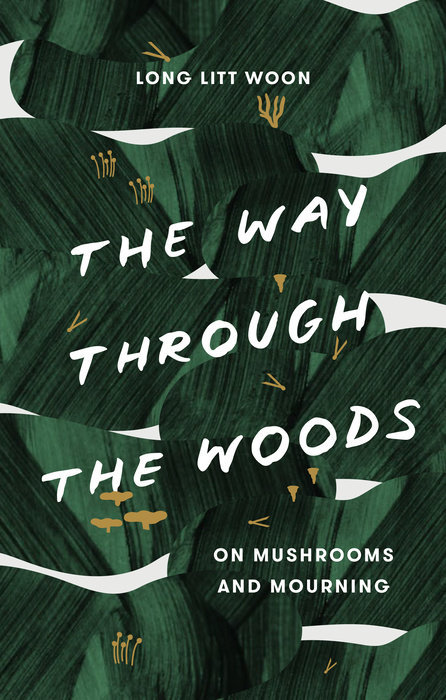
The Way Through the Woods: One Mushrooms and Mourning by Long Litt Woon
This is in part a memoir and a work of nature writing, and a very beautiful mixture of the two genres. Long Litt Woon is an anthropologist. She studied in Norway as an exchange student from Malaysia, and fell in love with Eloif, their marriage and friendship was cut short when her husband died suddenly after going to work. The book is about living through the experience of grief, and grieving, and is also about finding and discovering a new hobby, a love for mushrooms and mycology. While the book is very personal, reflecting on her own experiences with grief, there is an anthropological eye cast on the process of grief, the nature of taboos and customs in the mushrooming world, and an undenaible passion for all things mushrooms.
I have always enjoyed eating mushrooms, but I just get the regular mushrooms from the supermarket, and have not indulged in the wild diversity of mushrooming. This was a great way to learn more about different kinds of mushrooms, and I am seriously tempted to look into a mushrooming field guide and get in on foraging. The book talks about the world of mushrooming with this infectious passion, and seeing how the author grows and learns how to live with the loss, to make it through the woods of grief and find some happiness in an unexpected place. There is a really cute and sappy part at the end I do not want to spoil but I enjoyed it a lot, it's well earned.
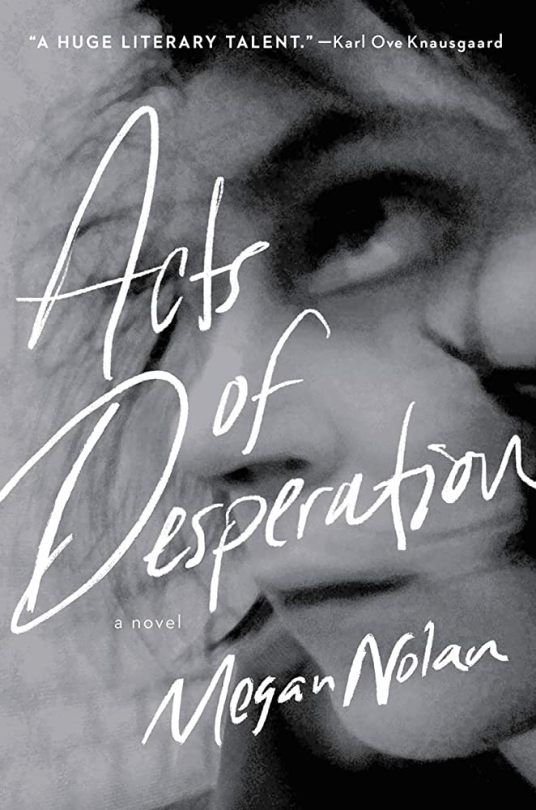
Acts of Desperation by Megan Nolan
This is the debut novel by Megan Nolan, who is a columnist at the New Statesman. Most of the time I'm wary of novels, movies, whatever, written by political commentators, as it can seem that their narratives end up serving their politics rather than the other way around, but this book was a lot more well-realized than I expected it to be.
The plot of the novel revolves around the unnamed narrator's relationship with Ciaran, a tall, handsome, big baby of a man. He's like the ultimate shitty boyfriend all of the twitter people of @guyinyourmfa or what have you describe. He's sour, cranky, mean spirited, humorless, controlling, emotionally manipulative, and what's really impressive is how the novel manages to tow the line, to really put you in the narrator's shoes where she is questioning whether she is overreacting to his behavior, before realizing that even if she is somehow wrong and this is just a normal guy, she deserves to be happy and somewhere better. And I think this is one of the great messages of the book and about toxic relationships more generally, things can and cannot work out, and there's no obvious ethical answer, and this sense that being broken up with should reflect on your character (especially when they first break up and the narrator blames herself for the whole mess), there could really be no fact of the matter. Or at least that's what I thought the book was going for in the first bit but then it just goes much further and worse than you're expecting.
The true indignity of it all, the real desperation is that she begged to stay with him, she begged to be needed by this guy. The desperation of the title refers to the narrator's desire to get love out of this beautiful boy who does not, and is perhaps unable, to love her back, through sex, domestic labor, attending to his emotional needs, walking eggshells around this guy. And the really incredible thing, is he criticizes her for being emotionally needy, for acting like a child, for wanting him to talk to her or be nice to her, while himself always whining and complaining about some bullshit. Just as an analysis or a description of this kind of guy, and of misogyny in general its a great read.
One of the blurbs on the book described it as an anti-romance novel. It's a kind of feminist horror story, in the way that Le Bonheur is a horror movie disguised as a love story. There are some really graphic scenes of sexual assault, discussions of self-harm, substance abuse, which is where it differs from something like Le Bonheur, where just the cynical logic of compulsory heterosexuality is being displayed, how beneath the beautiful veneer of domestic bliss there is something that is just purely evil. Acts of Desperation doesn't have that subtlety, or at the least it gains and loses it. Sometimes that loss makes room for something humorous, or shocking, other times it just serves to push the reader away.
I do think that most of it is handled quite well, it's saved for the middle of the book to give it the most impact, and a lot of the just general framing and presentation of the narrative is really skillful. The narrator's description of eating disorders, self-harm, of wanting to be thin, is really effectively done. And the discussion of the way in which sexual violence is seen as banal, or ubiquitous, and how frustrating it can be to communicate an experience that is so common really works. The writing across the board is super stylish and beautiful, there are so many wonderful quotables. I'll quote one now:
I said through my huddling and hiding that I was nothing, and I was happy to be nothing if nothing was what pleased him best. If nothing was the least trouble, then I would be it, and gladly. I would be completely blank and still if that was what worked, or as loud as he needed me to be to take up his silences. I would be energetic and lively if he was bored, and when he was tired of that, I would become as prosaic and dully useful as cutlery.
The narrator dumps Ciaran in the middle of a sentence and as a reader its a really cathartic moment to see the narrator break off this toxic dependency, to finally be free of this mess. There is one scene in particular after the breakup that just felt gratuitous, so if you are concerned about that kind of content I can't fully recommend it on that account. Otherwise it is a pretty good debut novel. I'm looking forward to Nolan's next novel, which is coming out later this year and will probably be a better book so I am looking forward to that.
2 notes
·
View notes